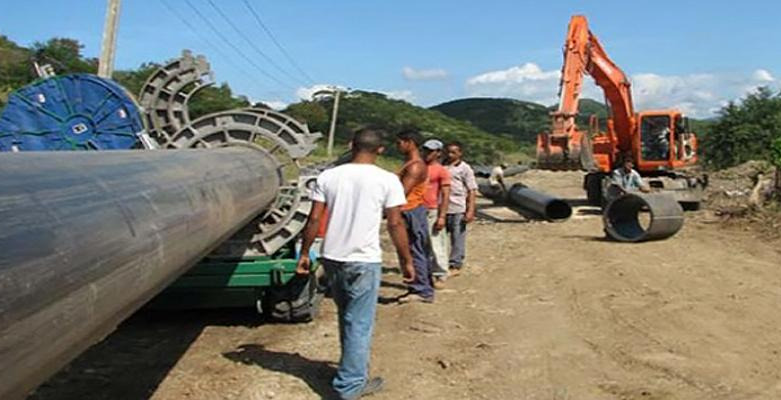
Although COVID-19 brought affectations and put a pause in several works, in the past year it was possible to improve the population's access to drinking water and sanitation, an essential human right endorsed in our Constitution.
By María Josefina Arce
Although COVID-19 brought affectations and put a pause in several works, in the past year it was possible to improve the population's access to drinking water and sanitation, an essential human right endorsed in our Constitution.
More than 70 thousand Cubans benefited from the actions carried out by the National Institute of Hydraulic Resources. Last November, 310 of the 468 hydraulic works planned for 2021 were already completed.
Speaking to Granma newspaper, Denis Moreno, senior specialist of the Institute's Infrastructure and Investment Directorate, said that among the main works completed are the networks and pipelines in low-lying areas of Santa María del Mar, in the Río Frío settlement in Guantánamo province, and in the Las Catalinas community in Las Tunas.
The National Institute of Hydraulic Resources has had to look for alternatives and new solutions, since it is also one of the sectors affected by the economic, commercial and financial blockade maintained by the United States against Cuba for almost sixty years.
Thus, income from the export of goods and services, which could be invested in expanding and improving the national infrastructure, has ceased to be received.
The economic siege also makes the acquisition of new technologies more difficult and expensive, as the country has to resort to more distant markets.
It has a negative impact on the preservation of a natural resource such as water by imposing limitations on the purchase of raw materials for treatment plants.
But neither the tightening of the blockade nor the pandemic prevented work from continuing in this area, which is so important for improving the living conditions of the citizens. Thus, in the last two years, more than 430 million pesos were allocated for works in Havana, which for its 500th anniversary was the scene of important actions.
The most important of these were the construction of the main roads in the municipality of Habana Vieja and Cuenca Sur, in the province of Mayabeque, one of the main access roads to the capital.
Other municipalities such as Boyeros, Cerro and Vedado also benefited from works aimed at increasing and improving water supply to the city.
The government's efforts include water transfers, which, in addition to allowing the arrival of the precious liquid to localities where drought is more severe, support the development of agriculture and the generation of energy.
This year, the Cuban government will continue working to guarantee Cubans a fundamental human right, access to drinking water. These plans include the implementation of infrastructure to improve aqueducts, sanitation and provide solutions to other problems related to this resource, which is essential for the life and development of the nation.

